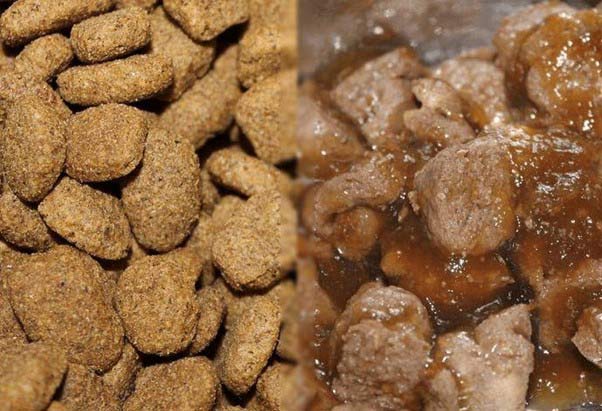
How To Choose The Right Dog Food For Your Pet
When it comes to selecting the right food for your pet, can be a difficult decision. There are so many types of dog food on the market that it can be hard to know which one is best for your pup.
It’s important to do some research and make an informed choice when deciding what type of food to give your dog.
In this article, we’ll discuss what’s in pet food, factors to consider when choosing pet food, and how to make sure you are providing the best nutrition for your pup.
What’s in Dog Food?
Dog food is usually made up of a combination of proteins, carbohydrates, fats, vitamins, and minerals.
The main ingredients in dog food are typically animal sources like chicken, beef, or lamb, fish proteins, dairy products, and grains such as wheat or corn.
Depending on the type of food you choose for your pet, there may also be added ingredients such as fruits and vegetables for additional nutrition.
How to Ensure Your Pup Gets the Best Nutrition Possible
Choose a High-Quality Dog Food
Your dog’s food should always be chosen with a lot of care. Look for high-quality dog food that contains essential nutrients that your pup needs, such as protein, carbohydrates, fats, and vitamins.
Also, check that the dog food you purchase doesn’t contain any harmful or artificial ingredients that can potentially harm your dog’s health.
Always read the labels of the dog food carefully and research the dog food brands on various online forums and dog owner communities.
Don't Overlook the Importance of Water
Water is just as important as food when it comes to your pup’s nutritional intake. Dogs need to have enough clean water available to them throughout the day.
If your dog is not drinking enough water, then it can lead to dehydration, kidney problems, and other health issues. Make sure to refill your pup’s water bowl regularly and keep it clean.
Supplement with Vitamins and Minerals

In addition to high-quality dog food, you can supplement your dog’s diet with vitamins and minerals, which can make a positive difference in its overall health. Some supplements can help with joint health, digestion, and immunity.
However, it’s still crucial to consult with your veterinarian before you start supplementing your dog’s diet. Your vet will confirm which supplements are appropriate for your pup and prescribe the right dosage.
Offer Healthy Treats and Snacks
Treats and snacks can be an excellent way to reward your dog, but not all of them are healthy. Some treats and snacks can be high in calories and unhealthy ingredients that can make your dog put on weight and even become obese.
Look for dog treats and snacks that are made with whole foods or fruits and vegetables, as these are the healthiest options.
Monitor Your Pup's Body Weight and Behavior
As a responsible dog owner, regular monitoring of your pup’s behavior, body weight, and overall health is necessary. This way, you can flag any concerns if there are any changes in their appetite, energy levels, or behavior.
If you feel like something is off, take your pup to your veterinarian as soon as possible. Your vet will be able to provide you with the best advice on diet, nutrition, and overall dog health.
Factors to Consider When Choosing a Pet Food
Nutritional Requirements
Just like humans, dogs also have specific nutritional requirements. Look for a food that meets your dog’s needs based on its age, size, and activity level. Make sure the food has a good balance of protein, carbohydrates, and fat.
Ingredients
The quality of ingredients in pet food is important. Look for high-quality ingredients, with meat as the main ingredient. Avoid foods with by-products, fillers, artificial colors, and preservatives.
Brand Reputation
Choose a pet food from a reputable brand that uses quality ingredients and has a good track record of safety.
Recalls
Check for any recalls of the brand you are considering. A recall is usually due to safety concerns and should be taken very seriously.
Looking for the perfect dog food can be challenging, especially when considering wet versus dry options.
Wet food is a great way to improve hydration and overall health, but it can be more expensive and spoil faster. Conversely, dry food is incredibly convenient, and promotes better dental hygiene, but might not appeal to every dog’s taste buds.

Ultimately, finding the right balance of cost, convenience, health, and preference is key to selecting the perfect dog food.
Digestibility
Digestibility is how easy it is for your pet to digest the food. The food should be easy for them to eat and not make them feel sick. Look for foods with high digestibility scores, as this will make it easier for your pup to absorb the nutrients in their diet.
Grain-Free vs. Grain-Inclusive
The debate around grain-free vs. grain-inclusive pet foods is still ongoing. Consult with your vet if you are unsure which to choose, especially if your dog has any known allergies.
Wet vs. Dry
The food you choose should be easy for your dog to digest. Low digestibility can lead to stomach issues and nutrient deficiencies.

Price
While it’s tempting to choose the cheapest option, remember that quality pet food is an investment in your dog’s health. Look for food that is within your budget but still has high-quality ingredients.
Breed-Specific
Some brands have specific formulas catered to certain breeds, specifically for small or large-sized dogs.
Your Dog's Preferences
Ultimately, your dog’s preference is important. Some dogs may have specific preferences in terms of texture, taste, or even smell! Keep this in mind when choosing their food.
Conclusion:
Choosing the right food for your pet can be a daunting task. However, with the right information and some research, it’s possible to make an informed decision that is tailored to your pup’s individual needs. You can go to dog product review portal like Dog Pet Guide to get unbiased evaluations and reviews on various types of dog food and brands.
By considering the ingredients, nutrition content, allergies, or sensitivities of your dog, you can provide them with the right food for their health and well-being.
Be sure to consult with your vet if you need more guidance or advice on which food is best for your pup. With the right diet, your pet can stay healthy and happy for many years to come!